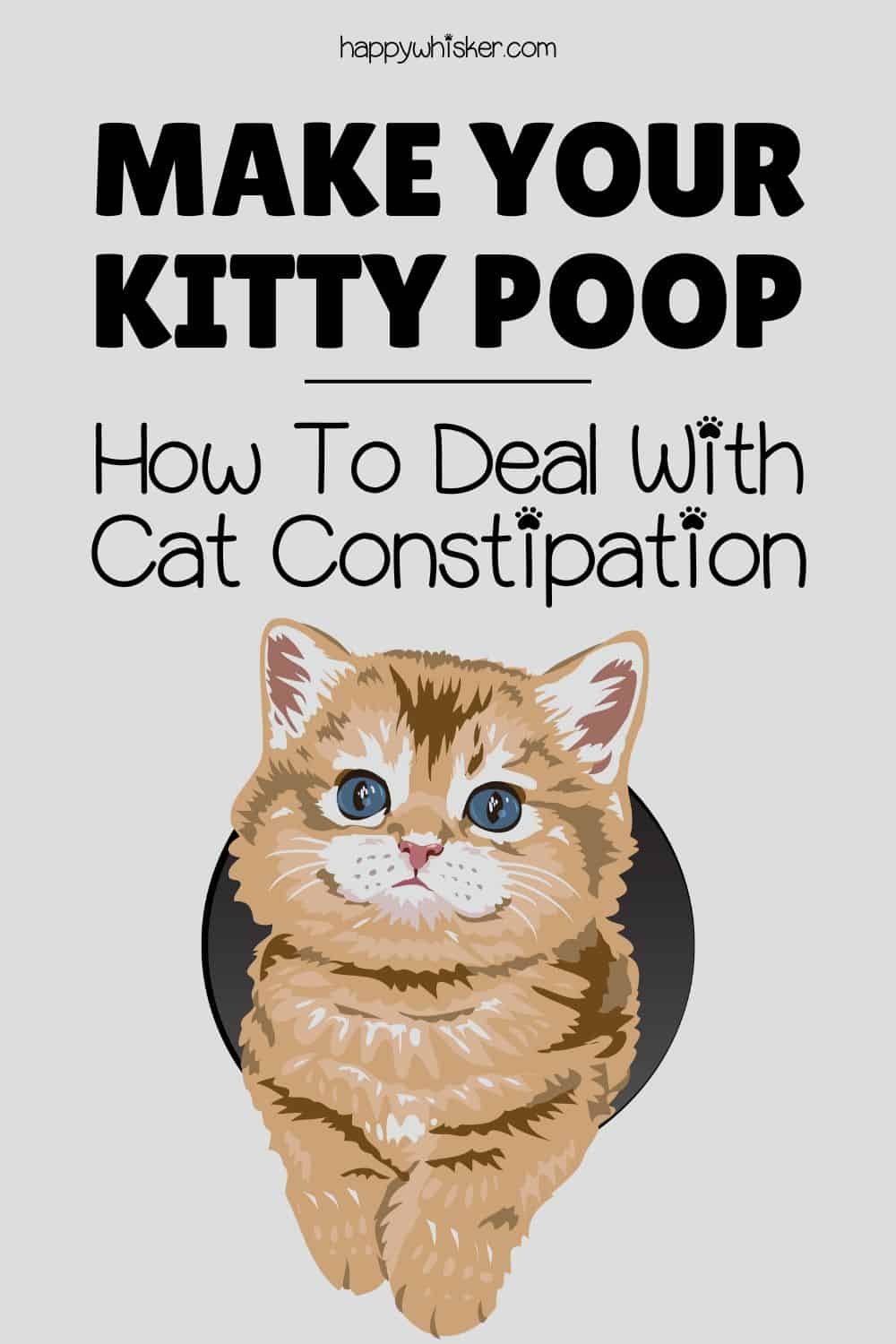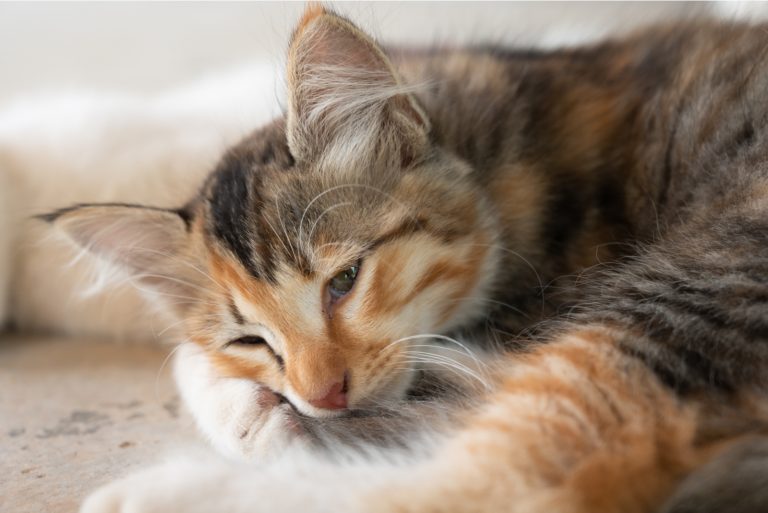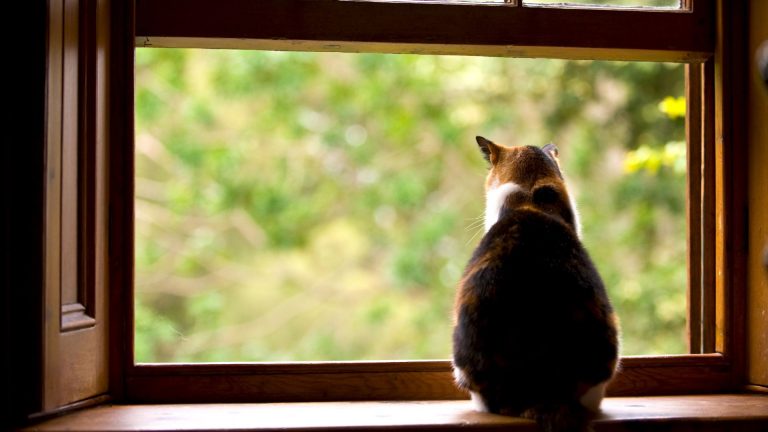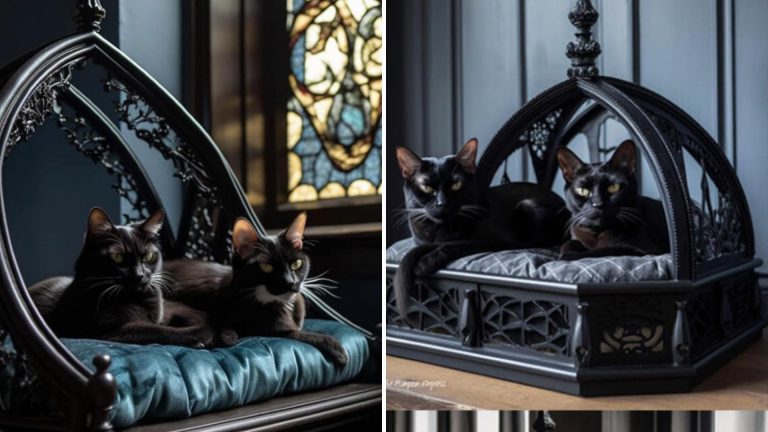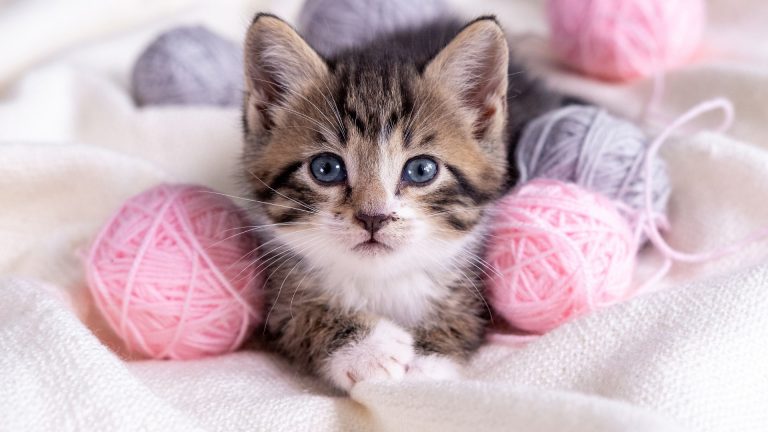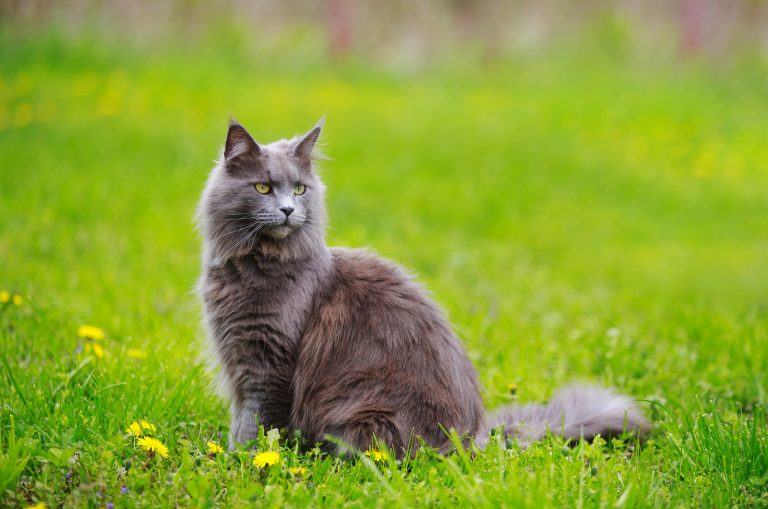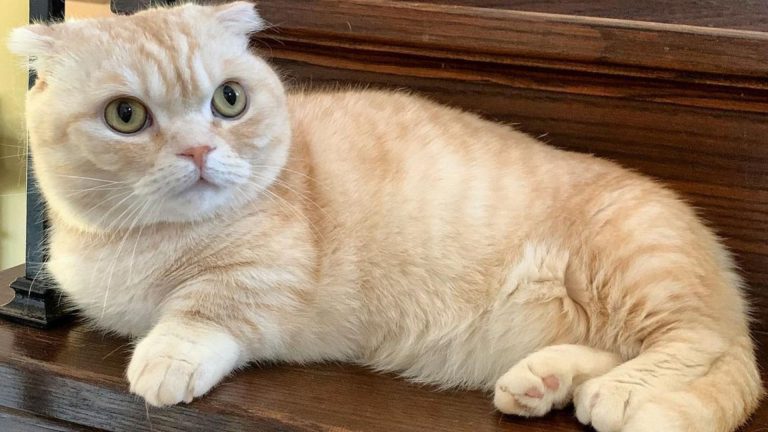Make Your Kitty Poop – How To Deal With Cat Constipation
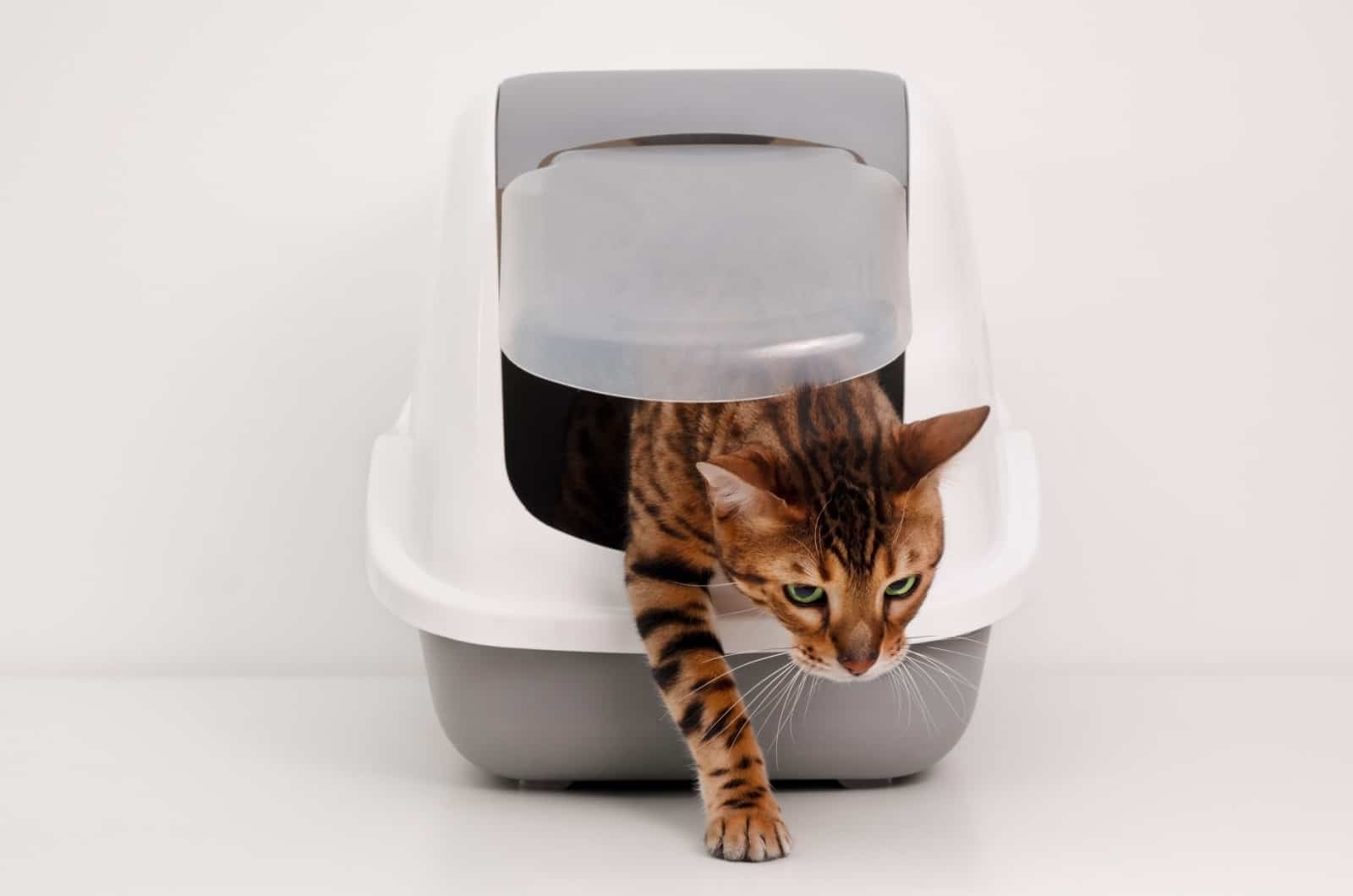
If your cat has trouble pooping or is not pooping at all, it can be a very serious issue. Constipation is characterized by irregular or infrequent bowel movements, having difficulty pooping, or not pooping at all..
If a cat does not poop for more than 48-72 hours, this can be a very serious threat to its health.
A constipated cat is a cat dealing with some very unpleasant symptoms and can face serious consequences if it is not dealt with promptly, therefore treating this issue as soon as possible is very important.
Although elderly cats are more prone to constipation, cats of any other age can experience this unpleasant problem.
Continue reading to learn more about cat constipation – what could be causing it, when it is an emergency, and how to treat it!
Cat Constipation – What Is Causing It?
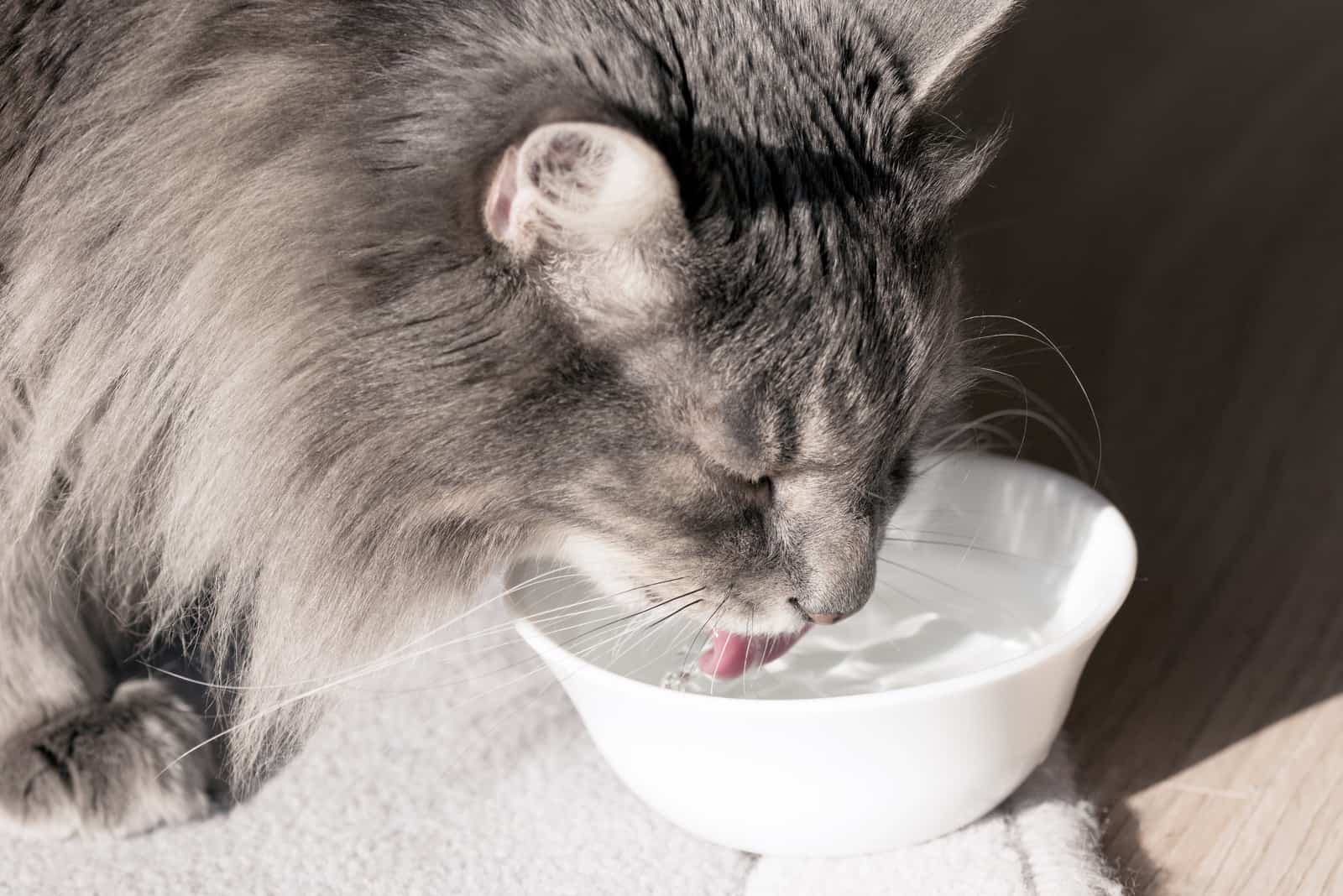
Below are the most common causes of constipation. Remember, it’s always best to consult your veterinarian about your cat’s specific cause of constipation.
Your vet will examine the cat, conduct tests, and refer to the cat’s medical history, lifestyle, and breed characteristics, to give you a diagnosis.
Please note that in more than 50% of affected cats, the cause of constipation is unknown, so they’re diagnosed with idiopathic constipation.
#1 Not Drinking Enough Water
Drinking water helps the passage of the stool through the bowel. Therefore, if your cat is not getting enough water (either by drinking it or obtaining it from wet cat food), constipation can arise.
This is because the cat’s body absorbs water from the stool, resulting in your kitty having dry, hard stool, and constipation.
Related: How Long Can Cats Hold Their Poop? A Helpful Guide
#2 Having A Diet Consisting Of Only Dry Food
If your cat’s diet consists of mostly dry food, this could be causing constipation (not to mention the potential problem of feline obesity).
Eating mostly dry food means not enough liquids are ingested, and this is a common cause of constipation.
#3 Having A Low-Fiber Diet
For some cats, not having enough fiber in their diet causes constipation.
Fiber is a form of carbohydrate that helps with digestion and speeds up the movement of stool through the cat’s gastrointestinal tract.
Foods high in dietary fiber include vegetables, such as carrots, broccoli, beans, peas, etc. High quality cat food will often have added fiber to improve digestion.
#4 Ingestion Of Indigestible Material (eg. Hairballs)
Our feline friends are self-grooming experts! However, if they ingest too much hair while grooming, hairballs can form in their stomachs.
Hairballs can form gastrointestinal blockage. Ingestion of bones or other items can cause a blockage.
While a foreign body stuck in the gastrointestinal tract is not actually constipation, it can cause similar symptoms and it can mean that the cat is unable to pass feces.
See Also: Why Is There Poop Stuck Halfway Out Cat? How To Solve It?
#5 Anxiety
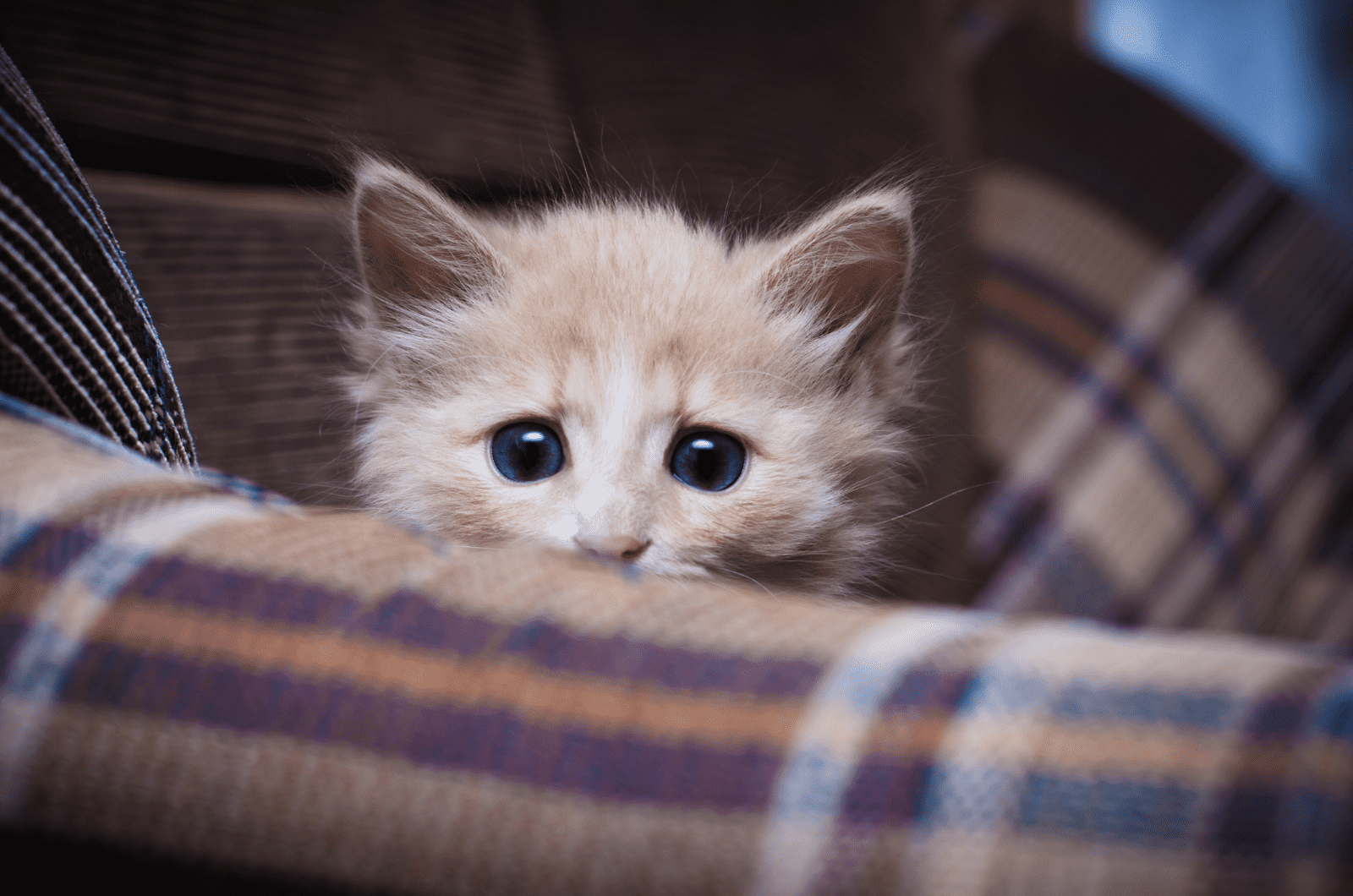
You might be a bit surprised to learn that one of the signs of anxiety (or stress) in cats is constipation. Other symptoms include excessive meowing, over-grooming, being restless, not eating much, hiding, and many others.
Cats are creatures of habit so change is often the trigger for heightened anxiety in our pet cats. Causes of anxiety include moving to a new home, not liking the new litter box, having a new pet in its territory, etc.
#6 Inflammatory Bowel Disease
Feline inflammatory bowel disease (IBD) is a serious condition that causes chronic inflammation of the gastrointestinal tract (GI tract).
It has a number of uncomfortable symptoms, and constipation can be one of them.
While the more common symptom of IBD is diarrhea, this may alternate with constipation so it should be considered as a possible diagnosis.
#7 Feline Megacolon
Cats with the condition known as megacolon have chronic constipation.
The affected cat’s colon is enlarged to the point where fecal matter accumulates in the large intestine rather than being forced into the rectum as it should be.
#8 Hyperthyroidism, Kidney Disease Or Diabetes
Other seemingly unrelated health issues can cause a cat’s constipation issues; illnesses such as hyperthyroidism, kidney disease and diabetes can all impact the digestive tract and metabolism.
These conditions can have numerous consequences for affected cats, including impeding the colon’s capacity to contract, causing constipation.
Read also: Blood In Cat Stool But Acting Normal: Causes & Treatment
#9 Medication Side-Effects
If your cat has just started taking a new medicine, check if it’s possible that the medicine’s side effects include constipation.
In this case, it’s best to talk to your veterinarian about the issue – they can advise whether to continue the treatment with that specific drug, switch to another treatment option or cease the treatment.
Do not stop a medication without first speaking to the vet who prescribed it.
#10 Tumor Or Cancer
If a cat has colonic tumor or cancer of the pelvic canal, the tumor/cancer can cause a narrowing which restricts the normal passage of stool.
Another potential cause of constipation is intestinal or spinal cancers, which can affect the nerves of the cat’s colon, changing their ability to pass a normal bowel movement.
Signs Of Constipation In Cats
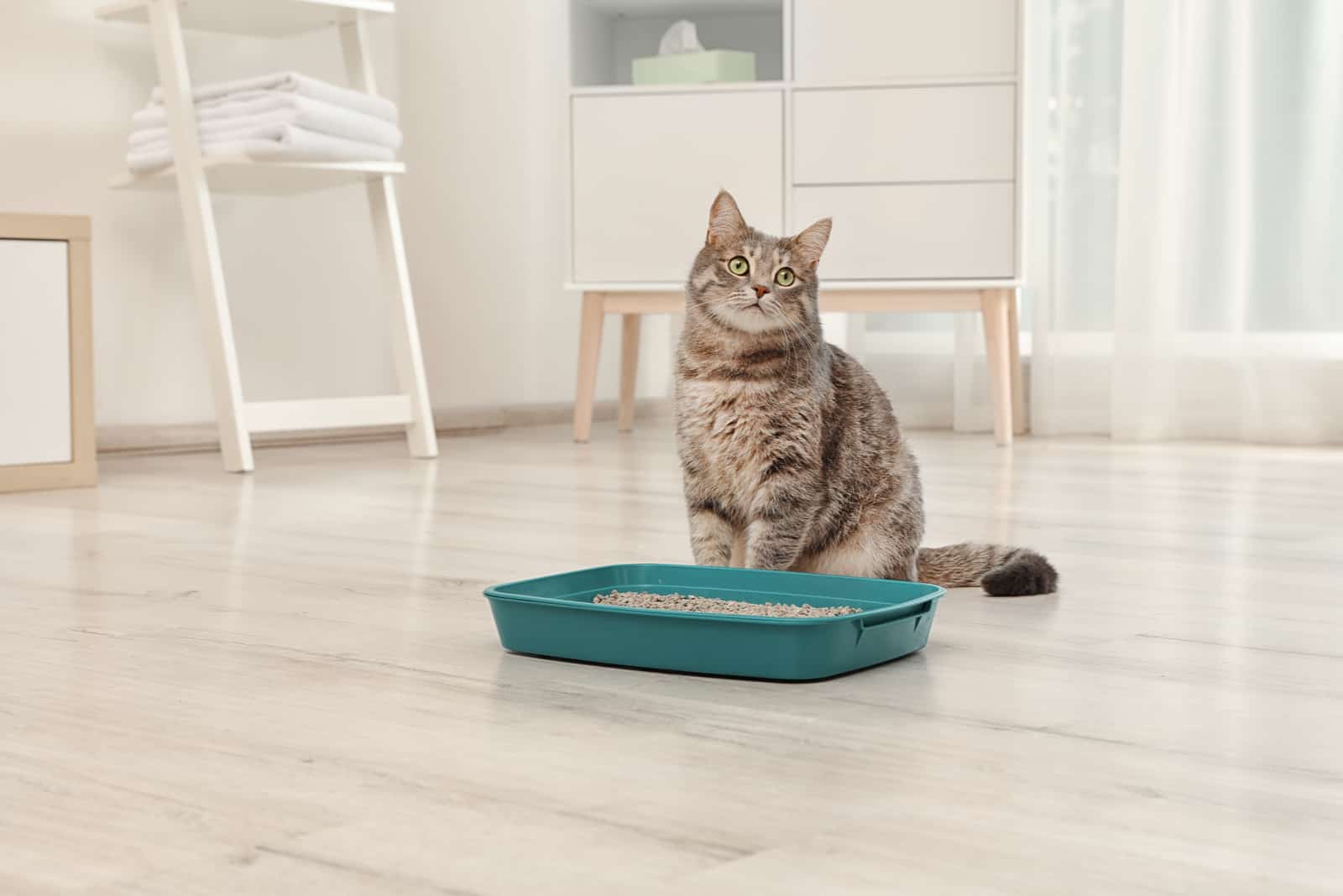
If you suspect your feline friend is experiencing constipation, look for the following common symptoms of constipation:
• Passing hard stools
• Pooping outside the litter box (due to discomfort)
• Going in and out of the litter box when wanting to use it
• Avoiding the litter box
• Not pooping for more than 72 hours
• Straining to go to the litter box
• Crying when trying to poop
• Crying when defecating
• Visiting the litter box frequently, but not pooping
Other “non-pooping related” symptoms of constipation include:
• Vomiting
• Abdominal pain
• Loss of appetite
• Loss of energy
• Not wanting to play/interact
Is Constipation In Cats An Emergency?
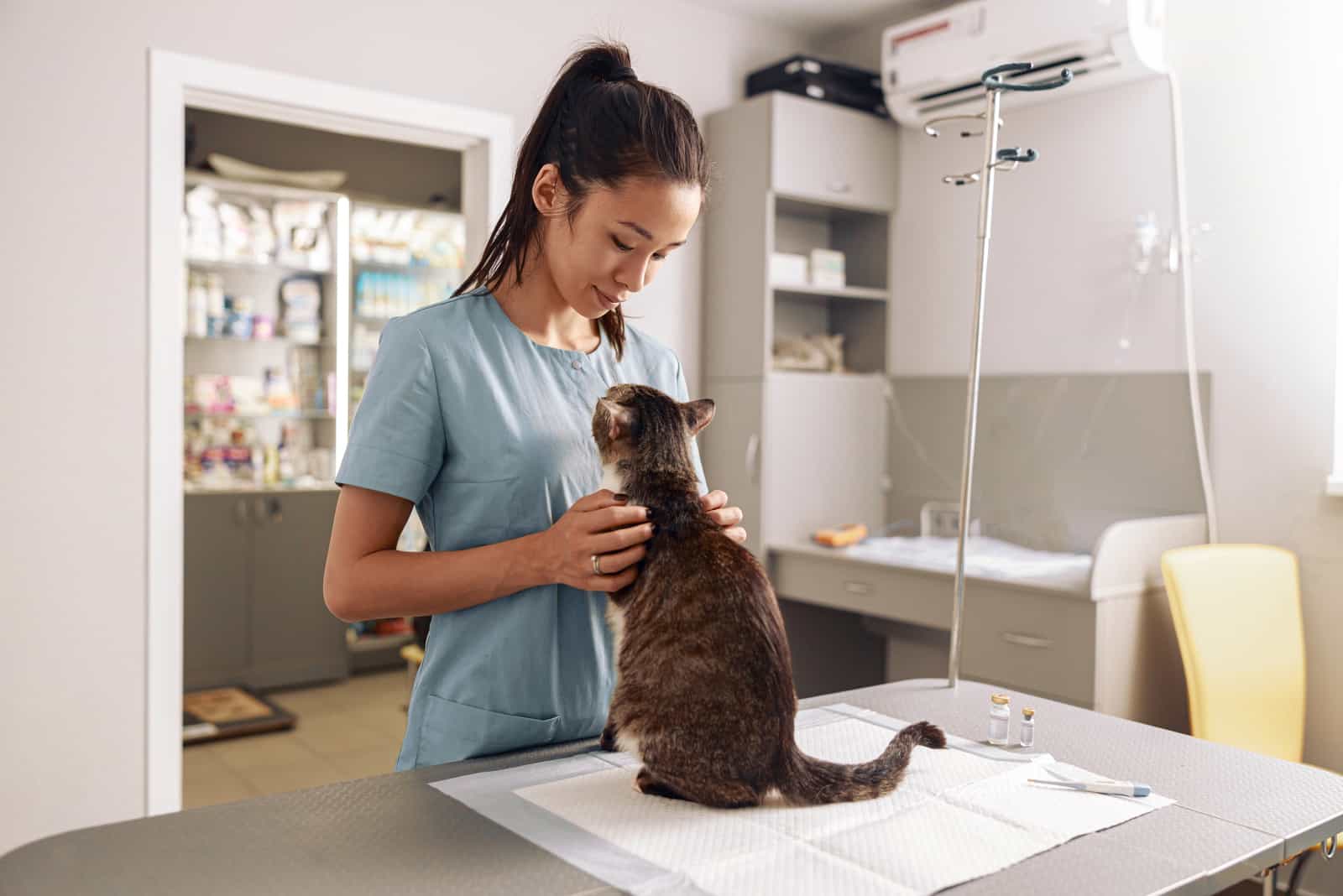
Cats usually poop once a day, so if your cat has not pooped for longer than two or three days, then that’s a sign something is wrong.
If your cat has not had a bowel movement for more than 48-72 hours, then I suggest you visit the vet as soon as you can.
As well as being uncomfortable or painful for the cat, constipation can also be a sign of other health issues (such as kidney disease, diabetes, hyperthyroidism, etc.)
It’s recommended to visit the vet, and not experiment with at-home treatments (especially if it’s your first time trying them out). If the cause is something urgent such as a blockage, then prompt treatment could mean the difference in life and death.
If you notice your cat is experiencing other health issues, such as not drinking, not eating, not moving as much, losing weight, hiding, or experiencing nausea and vomiting, please visit a vet immediately.
Usually, cats that experience these symptoms are dealing with a severe case of constipation, possibly caused by a serious illness which needs veterinary aid.
Treating Constipation In Cats – How To Make Your Kitty Poop
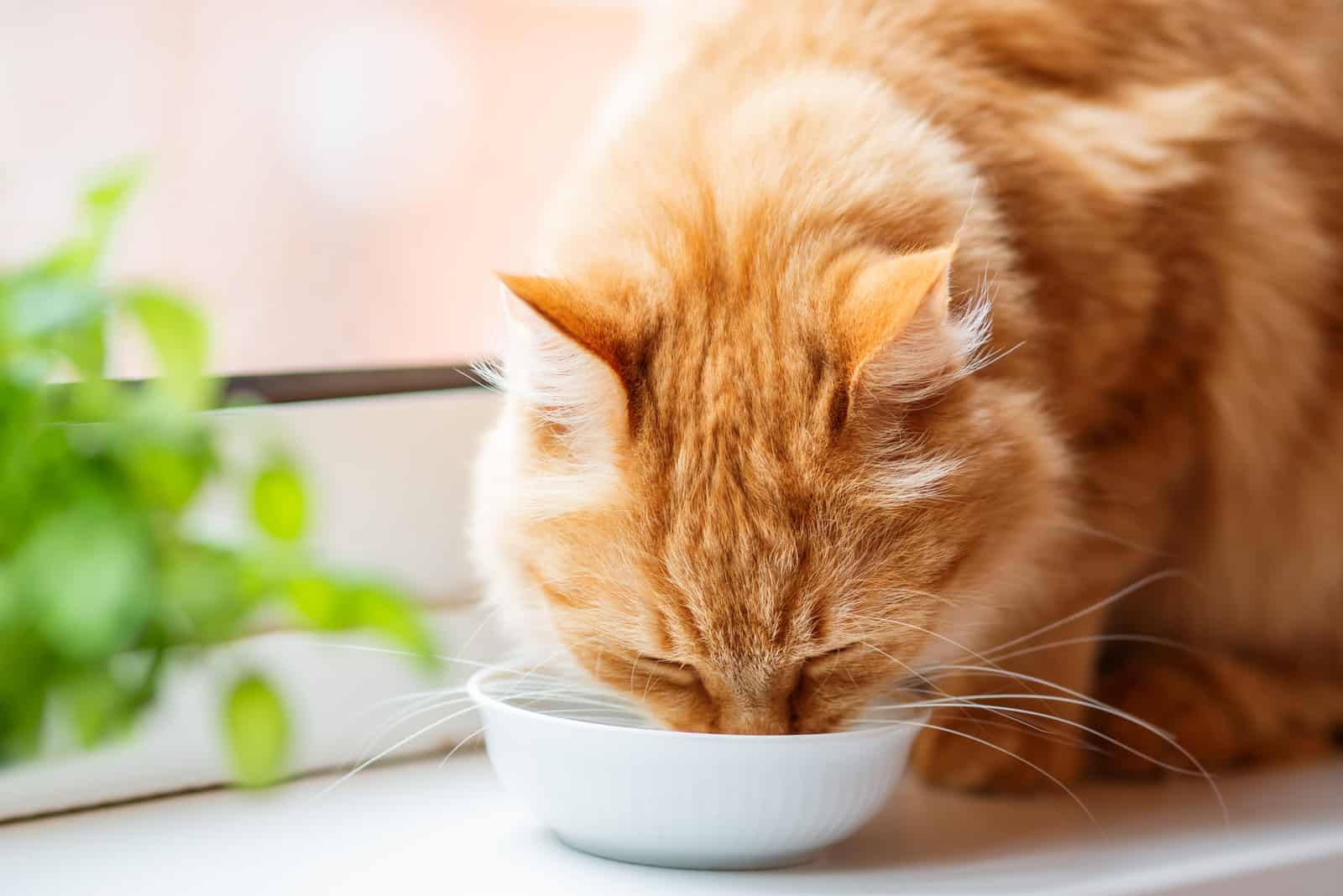
Constipation is not something that should be taken lightly; treating it in time is of the utmost importance.
Some of the treatments mentioned below are only suitable if your cat is not suffering from a mild case of constipation (such as not pooping for a day or so). On the other hand, some treatment options are better for cats that have a severe case of constipation.
#1 Make Sure Your Cat Is Hydrated
You probably remember from above that one major cause of constipation is poor water intake. Luckily, this can be solved quite easily.
Make sure your cat drinks enough water each day. Drinking water and maintaining a healthy level of hydration helps prevent constipation.
The best way to increase a cat’s water intake and keep them hydrated is to feed them wet food. Cats aren’t keen on drinking standing water so you can also try using small cat-friendly water fountains to make drinking water more interesting for them.
Related: Can Kittens Drink Water? What’s Best For Them?
#2 Introduce High-Fiber Foods In Your Cat’s Diet
To increase intestinal motility, try adding foods high in fiber. A high fiber diet is known to really help cats battling this issue.
Psyllium is a good example of a dietary fiber that relieves the symptoms of constipation. After it’s fermented, it encourages contraction of the colonic smooth muscle, resulting in smoother fecal matter passage.
It’s recommended to introduce more store-bought high-fiber food formulated for cats and not give your cat high-fiber human food.
#3 Try Probiotics
Probiotics promote “good bacteria” known for maintaining good intestine health.
Constipation can be avoided by having healthy intestines that keep stools soft and move them along effectively. Healthy gut bacteria play a very important role in ensuring healthy digestion.
Cat probiotics balance your cat’s intestinal gut bacteria (also referred to as the microbiome) and provide enzymes that could aid in digestion, helping to maintain gut health.
#4 Using A Laxative
Laxatives (such as stool softeners) are substances that promote and speed up bowel movements.
The most commonly used cat-safe laxative is Miralax. However, giving your cat a laxative should always be approved by your vet first!
Many over-the-counter laxatives are not safe for cats to use. Please, do not give your cat human laxatives and never use any meds without consulting your veterinarian first.
#5 Enema
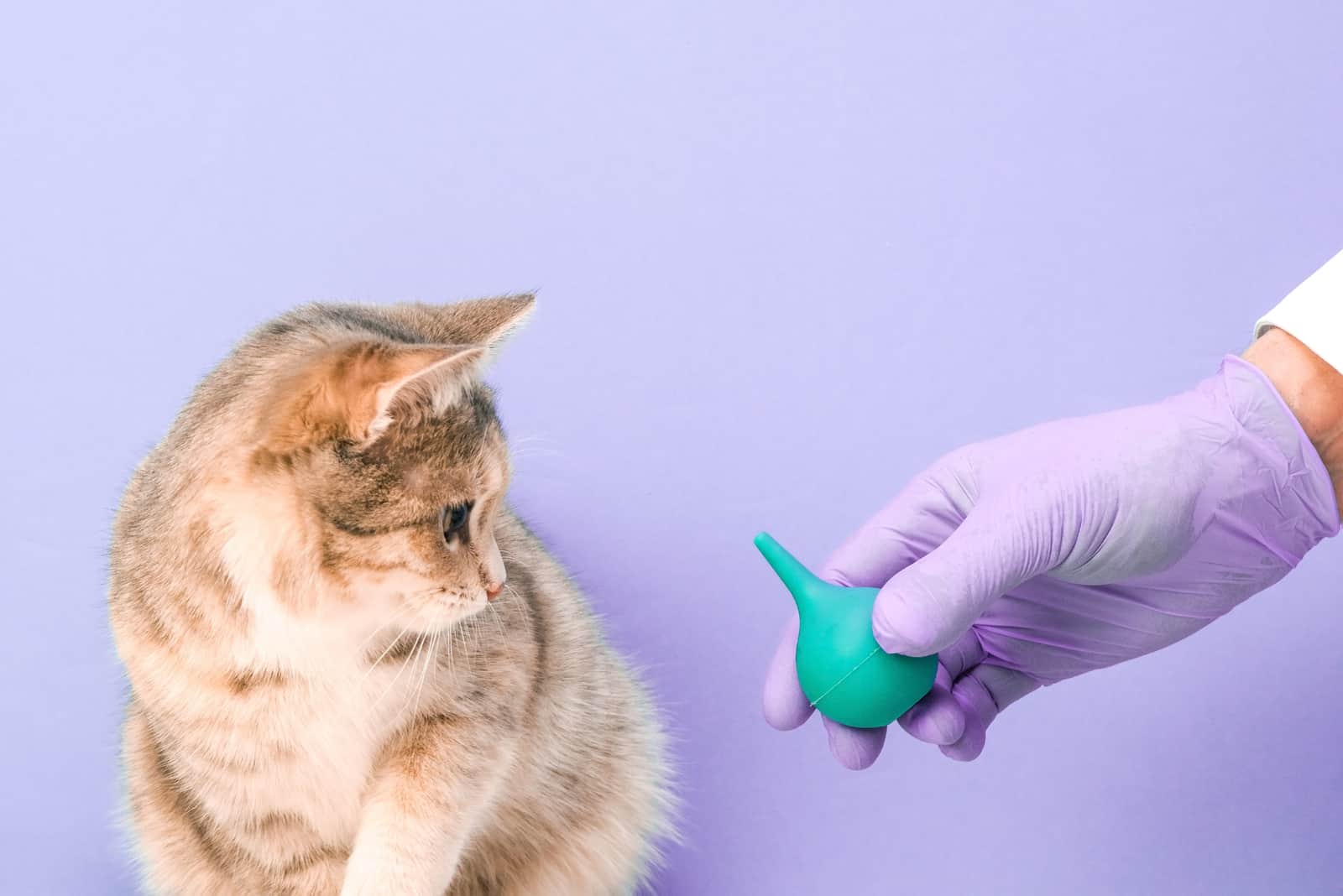
Enemas involve the injection of fluids into the colon through the anus in order to increase fecal water content and promote bowel movement (aka pooping).
The enema must be administered carefully by a veterinarian; it should not be done at home because several enemas intended for people are poisonous to cats.
Suggested: What To Expect After Cat Has An Enema? At Home Care
#6 Make Sure Your Cat’s Overall Health Is In Order
Causes of cat constipation also include stress, anxiety, lack of physical exercise, obesity, as well as other health issues.
In order to prevent constipation from arising, or reoccurring, make sure to do the following:
• Find the causative agents of stress and reduce them
• Increase the cat’s daily physical exercise
• Make sure your cat’s diet is healthy
• Visit the vet regularly to ensure there are no undiagnosed health issues
#7 Medical Treatment May Be Necessary
In some cases, no matter what you do to help your cat’s constipation, it is simply not enough and a professional’s help is needed.
This is the case for cats suffering from megacolon, inflammatory bowel disease, and other serious health issues (hypothyroidism, kidney disease, diabetes etc.).
Sedation for deobstipation (manually extracting the feces via a rectal exam) may be necessary in some situations when more conservative therapies are unsuccessful.
Surgery may be required in some circumstances. Therefore, do not try any at-home remedies if your cat’s symptoms are severe!
Taking Your Pet To The Vet
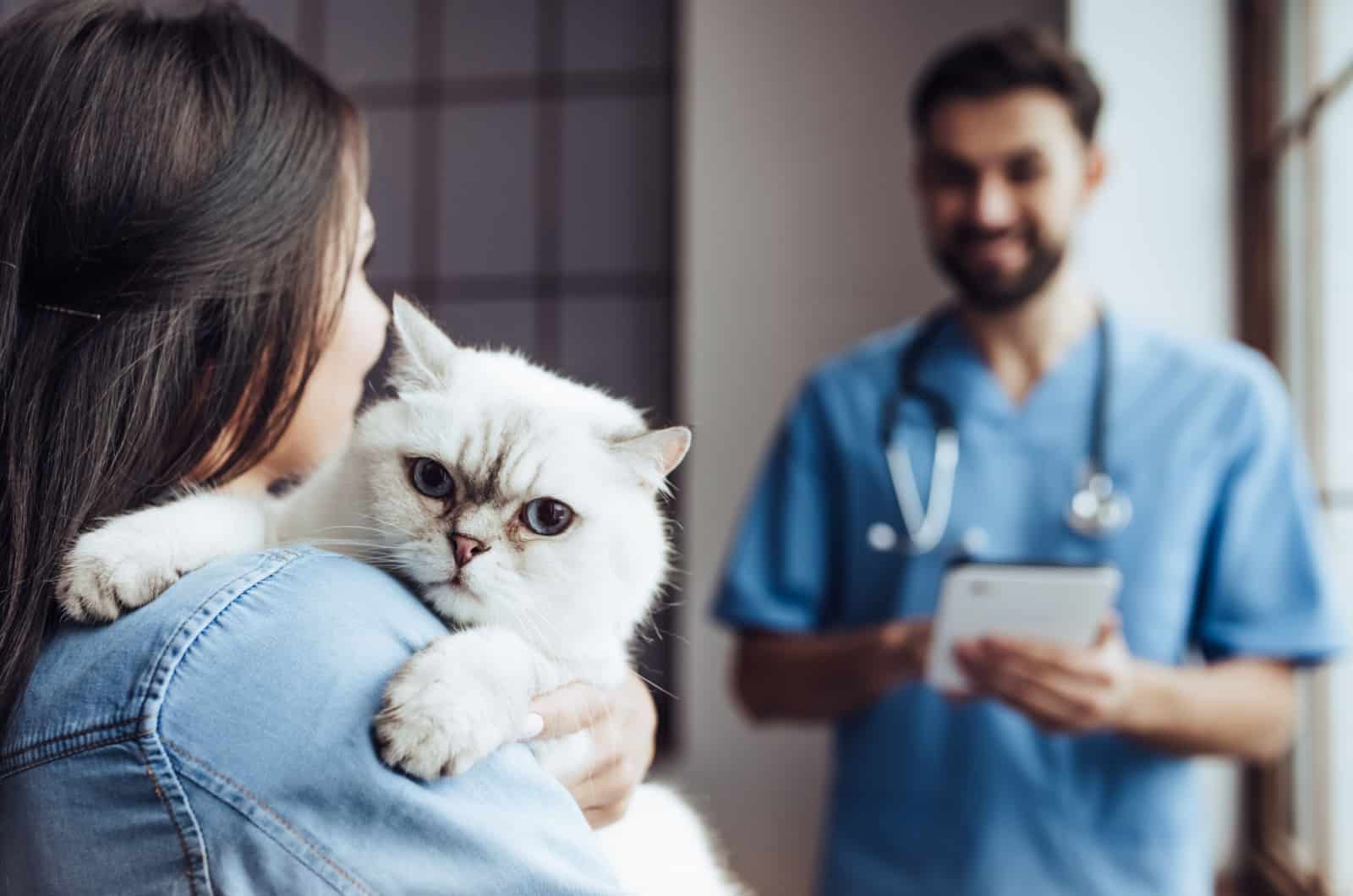
If you’ve decided to take your pet to the vet, you might want to know what to expect.
Your cat’s vet might involve the following procedures:
• Physical exam
• Bloodwork
• Abdominal ultrasound
• Abdominal x-ray
These tests will hopefully provide your vet with insight into what’s causing your cat’s lack of bowel movement.
After establishing a diagnosis, your doctor of veterinary medicine (DVM) will explain the course of treatment.
Recovery is typically quick once the hard stool has been removed. Unfortunately, your cat is very likely to experience constipation once more if you don’t address the root cause, whether by treating a medical condition or changing your cat’s lifestyle.
In Conclusion
Cat constipation is very uncomfortable for the affected cat, and it can potentially be a serious health issue.
It’s very important to spot cat constipation symptoms on time, and act accordingly. If your cat has not had a bowel movement in more than 48-71 hours, that means visiting the vet is essential.
Preventing recurrences of this issue is extremely important, as it will save your cat the trouble of experiencing this issue again and again.
Make sure your cat is hydrated, eats both wet and dry food, has enough physical exercise, and has regular vet checkups! Hopefully this will help your kitty to be perfectly healthy and happy!
Like this post? Share or pin it for later!
